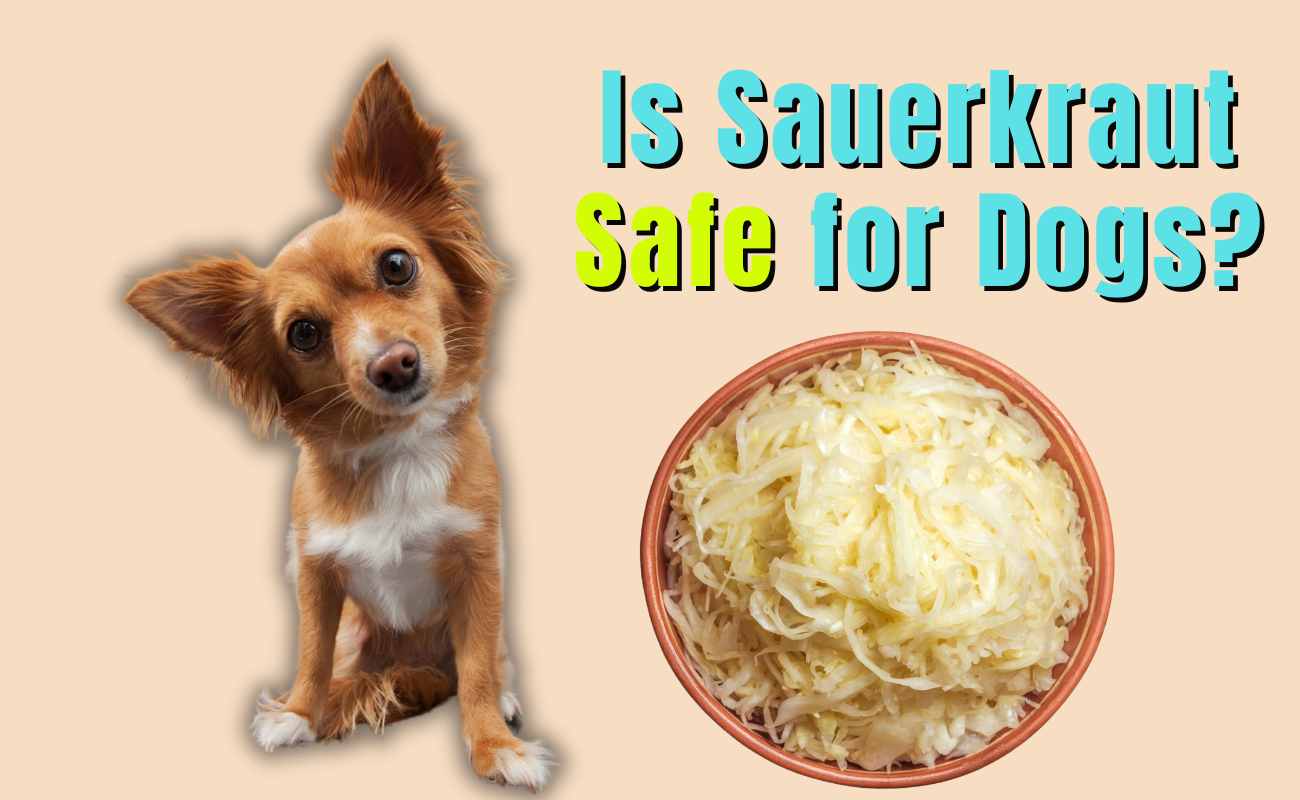As a dog owner, you always want the best for your furry friend. Whether it’s finding the healthiest treats or introducing new foods, their well-being is your top priority. You might have wondered if it’s safe to share some of your favorite human foods with your dog—like sauerkraut. So, can dogs eat sauerkraut? Let’s dive into what sauerkraut is and whether it’s safe for your dog to enjoy.
What is Sauerkraut?
Sauerkraut is a type of fermented cabbage that’s known for its tangy flavor. The word “sauerkraut” comes from German, meaning “sour cabbage.” It’s made by fermenting cabbage with lactic acid bacteria, a process that not only gives sauerkraut its unique taste but also adds some health benefits for humans. Rich in probiotics and nutrients, sauerkraut is a popular choice for many looking to add more flavor and health benefits to their meals.

Is Sauerkraut Safe for Dogs?
The good news is that sauerkraut can be safe for dogs to eat in small amounts. However, there are some things to keep in mind before you start sharing your sauerkraut with your pup. The main concern with sauerkraut is its high salt content, which can be harmful to dogs in large amounts. Another thing to consider is that sauerkraut is a fermented food, which means it might not be suitable for all dogs, especially those with sensitive stomachs.
Health Benefits of Sauerkraut for Dogs
If your dog enjoys the taste and has no adverse reactions, sauerkraut can offer some surprising health benefits.
- Probiotics for Better Digestion: Sauerkraut is rich in probiotics, which are good bacteria that help keep the gut healthy. These probiotics can aid in digestion and support your dog’s overall gut health, potentially reducing issues like diarrhea and constipation.
- Vitamins and Minerals: Sauerkraut contains several important vitamins and minerals, including vitamin C and vitamin K, which are beneficial for your dog’s immune system and bone health.
- Antioxidants: The fermentation process increases the levels of antioxidants in sauerkraut, which can help fight off harmful free radicals in your dog’s body, promoting better overall health.
Homemade Sauerkraut vs. Store-Bought: Which is Better?
When it comes to choosing between homemade and store-bought sauerkraut, homemade is generally the safer option for dogs. Homemade sauerkraut allows you to control the ingredients, ensuring there’s no added salt, spices, or preservatives that could harm your dog. On the other hand, store-bought sauerkraut often contains added ingredients that may not be suitable for dogs.
However, if you opt for store-bought sauerkraut, make sure to read the label carefully. Choose a brand that has minimal ingredients, preferably just cabbage and a small amount of salt, and avoid any with added spices like onion or garlic.
Signs Your Dog Should Avoid Sauerkraut
While sauerkraut can be a tasty treat for some dogs, it’s not suitable for all. Here are some signs that your dog might need to avoid sauerkraut:
- Allergic Reactions: If your dog shows signs of an allergic reaction, such as itching, swelling, or difficulty breathing, after eating sauerkraut, stop feeding it to them immediately.
- Gastrointestinal Issues: If your dog experiences vomiting, diarrhea, or excessive gas after eating sauerkraut, it may not be a good choice for them.
- Pre-existing Conditions: Dogs with certain health conditions, like kidney disease or heart problems, should avoid high-salt foods like sauerkraut. Always consult your vet if you’re unsure about introducing new foods to your dog’s diet.
Conclusion
In moderation, sauerkraut can be a safe and healthy addition to your dog’s diet. It offers several health benefits, including probiotics for digestion and essential vitamins and minerals. However, it’s important to be mindful of the risks, such as high salt content and potential stomach upset. By choosing plain sauerkraut and introducing it slowly, you can see if your dog enjoys this tangy treat without any issues. Remember, every dog is different, so always consult with your vet before introducing any new foods to your dog’s diet.









